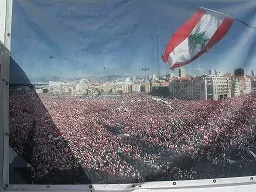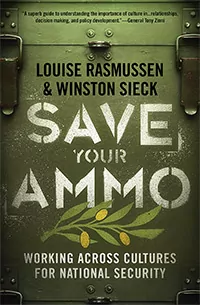
Direct displays of respect can reduce conflict in Arab protests, where a premium is placed on honor. Such displays enable people in potentially volatile crowd situations to accrue honor while avoiding risks associated with violent confrontation.
These conclusions are based on studies of Arab protest experiences conducted in the U.S. and Beirut, Lebanon.
Winston Sieck of Global Cognition led the studies on the culture of Arab protests. He and his collaborators published their paper, violent and peaceful crowd reactions in the Middle East: cultural experiences and expectations, in the journal Behavioral Sciences of Terrorism and Political Aggression.
The findings of the study help with the interpretation of some events in the Arab Spring. For example, they indicate that respectful, affirming gestures between protestors and security members that occurred in some countries, such as giving flowers, sharing water and taking pictures, were extremely important in fostering (relatively) peaceful Arab protests. Such small moments occurred several times in between fighting early on in the Egyptian protests.
Sieck and his research team tested a theory of culture and crowd behavior to understand Arab protests. The theory implies crowd members are rational decision-makers focused on shared goals. Common alternative theories hold that crowd membership causes people to act irrationally, typically resulting in mindless violence.
The researchers also tested the specific hypothesis that honor tends to weigh heavily in the decision processes of Arab protestors.
Honor is regarded as a fundamental cultural value in the Middle East and Central Asia that is associated with distinctive cultural norms. Crowd membership creates an opportunity to prove oneself in a highly-visible situation, and thereby accrue a great deal of honor. The amount of honor gained increases with the extent of risk to physical safety, such as by crowd members aggressively confronting heavily armed security forces who take an adversarial position.
Rational decision-making combined with the value of honor implies that direct displays of respect towards Arab protestors can reduce tension and prevent violence. In such situations, crowd members are provided with the opportunity to gain honor without having to trade-off physical risk to themselves.
In one study, Sieck and his colleagues interviewed members of Arab protests and security forces to test assumptions of the theory. Their results showed that Middle Eastern crowd members made clear assessments of risk and reward, and exhibited goal-directed behavior indicating a rational decision process. The crowd members were nevertheless willing to accept considerable risk of physical harm to achieve the goals shared by the crowd.
The results further revealed important linkages between peoples’ understanding of the social relations and the actions they considered to be appropriate in Arab protests. Middle Eastern crowd members and security forces actively discussed and debated the nature of their relationship.
For example, they would debate the role of security forces in the Arab protests. Were they on the scene to protect civilians? Did they oppose the protestors’ cause? In these cases, the crowd members decided on appropriate actions depending on how the debate turned out.
The researchers also analyzed the crowd reactions quantitatively, finding that escalation of force against members of Arab protests inflamed them more often than not. On the other hand, attempts to understand and communicate with crowds or exhibit restraint tended to decrease conflict. This doesn’t mean that the Arab protestors gave up on their goals, only that they pursued them in a more peaceful manner.
A second study using surveys showed that Americans and Arabs have different beliefs and expectations about ways in which crowds will react to security forces in Arab protests. Americans felt that security force efforts to communicate with crowds would likely have no effect on reducing violence and destruction. In contrast, Arabs expected that security force communication with crowd members could indeed serve to reduce violence and aggression. This indicates that the Arab security forces were better able to put themselves in the shoes of the crowd members than the Americans, who had to try to engage in cross-cultural perspective taking.
The Middle Eastern experiences and beliefs were consistent with rational decisions that place a premium on honor. American expectations suggested a different frame of reference with less sensitivity to honor. It is possible that the behavior of protestors in the West is more scripted and so less sensitive to signs of respect than in Arab protests, though the idea requires further investigation.
References


when you get to know Arab people, especially Palestinian, they’re actually very nice and caring. i experienced it when i was in Palestine years ago. 🙂
I’ve experienced the same with the Arab folks I’ve had the pleasure to meet. Very warm and friendly.